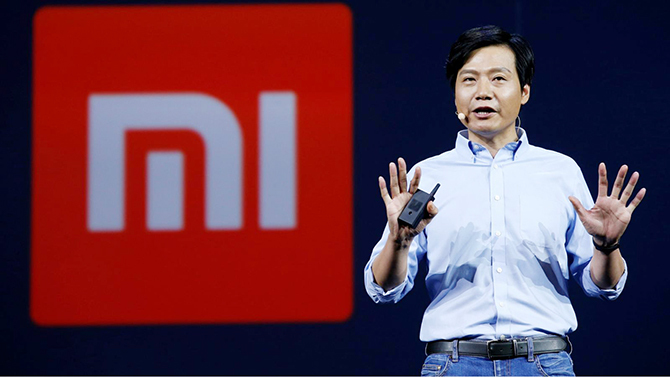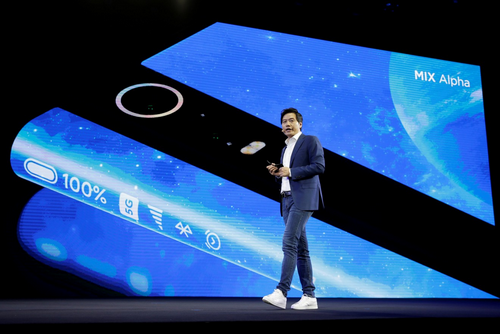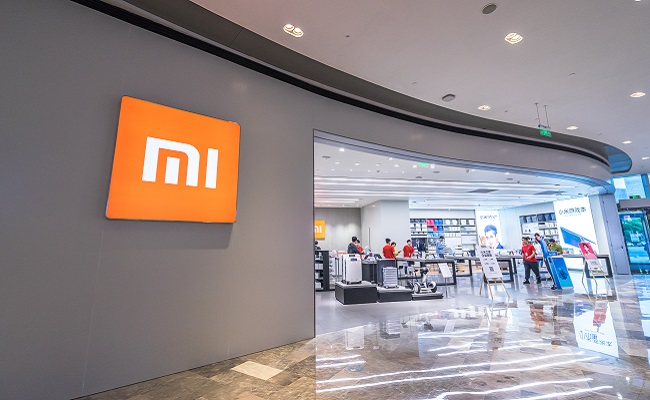‘Small grain of rice’ struggles to turn itself into the ‘Apple of China’, admits to engaging in a life-or-death battle but vows to succeed
In February, Xiaomi founder and CEO, Lei Jun, hinted at bringing down Apple and Samsung, and vowed to make his company China’s best-selling luxury brand in three years. next year. The statement was made by Lei in a post on the Weibo social network with the title “This is a life and death battle”.
Xiaomi is the world’s 2nd largest smartphone supplier and a master at manufacturing and manufacturing, from rice cookers to e-scooters. If all goes according to plan, the company could even launch its first electric car in 2024, even before arch-rival Apple.
However, in the context of the ongoing technology crackdown by mainland authorities, Xiaomi is at risk of having to comply with more regulations at a time when the global chip supply is in short supply. Shares listed on the Hong Kong Stock Exchange (China) once plunged more than 50% from a year earlier and were trading at only $1.5 per share. Analysts at the time explained that Xiaomi’s growth momentum was highly dependent on whether it could beat domestic and international rivals.

Xiaomi Founder and CEO, Lei Jun
“Xiaomi is on three races: smartphone, internet of things and electric car. All are fraught with challenges from the existing major competitors. However, Xiaomi still wants to have it all. This journey will be extremely difficult,” said Ivan Lam, smartphone analyst at Counterpoint Research. In particular, Xiaomi’s biggest barrier to realizing its goal of surpassing Apple and Samsung is convincing consumers to switch to using its high-end product lines.
Difficult to overcome the shadow of Apple and Samsung
Xiaomi, the brand launched in 2010, has made a name for itself by building a community of loyal fans called “mi fen”. They choose Xiaomi because they want to buy products with advanced processors but only at extremely affordable prices. This makes Xiaomi, although ranked 3rd in terms of sales in China, but only 5% of the global premium market with phones priced above 400 USD.
“It will be difficult to beat Samsung and Apple. It doesn’t match Xiaomi’s strengths, and Xiaomi doesn’t have the brand strength that Apple and Samsung have”, a former CEO said.

Xiaomi phones are still improving day by day
However, in the end, Xiaomi phones are still improving day by day. The 12-series series released in March priced at $749 is expected to directly compete with Apple’s $799 iPhone 13. Xiaomi at that time also pledged to open 20,000 more stores, which is double the current number in the Chinese market, and announced to change the brand identity so that customers forget the “Mi” prefix – which refers to hard tags of old versions.
However, according to former executives, the Xiaomi phone still needs more than that, because all efforts that the brand makes to break “prejudice” still end in disappointment.
Vow to make itself the most luxury brand in China
However, it cannot be denied that Xiaomi has tried very hard to dominate the high-end smartphone market. The company has committed to invest $15.7 billion in research and development activities over the course of five years, while improving products in the billion-strong Indian market. This is where Xiaomi attracts a lot of users, thereby deepening the internet service ecosystem that accounts for a large part of revenue. Specifically, the internet services segment, including advertising on games, mobile video, fintech and e-commerce accounted for 8.6% of revenue last year, of which the overseas market recorded more growth. chief.
“In India, Xiaomi doesn’t focus much on profit. Instead, the company focuses on attracting as many users as possible, then selling internet services to them,” said another former senior executive.

Xiaomi committed to invest 15.7 billion USD in research and development activities over the course of 5 years
According to the Financial Times, Xiaomi’s growth is still constrained by the lack of a standalone operating system. The brand’s products are still largely dependent on Google’s Android ecosystem.
“We tried all kinds of ways to redirect traffic from Google to Xiaomi, but this is not the optimal solution. Installing Google apps will limit the internal app access rate, thereby affecting Xiaomi’s total revenue”, said an employee.
Fortunately for Xiaomi, however, competitors are holding back from expanding. Typically, Huawei has suffered many losses since the US sanctions and Alibaba, the victim in the policy of tightening Big Tech by mainland authorities.
Explaining Xiaomi’s “trace”, Mr. Wong Kok Hoi, Investment Director at APS Asset Management said: “Xiaomi products have always faced stiff competition, and therefore, the brand’s products do not create a monopoly position.“.
“Building the power of a Chinese brand is very difficult and very few people can do it”, said the former CEO. “However, Lei still has a firm belief that what he is doing is right… I wouldn’t be surprised if Xiaomi does this.“.
According to: Financial Times
at Blogtuan.info – Source: genk.vn – Read the original article here


